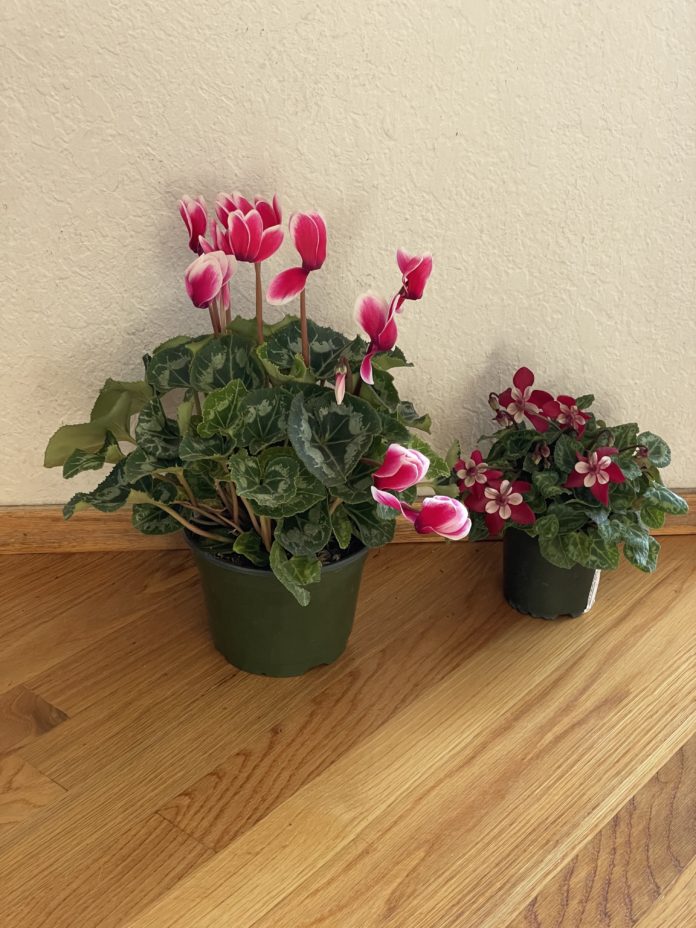Winter Gardens with Chuck McClung
At our final meeting in 2022, Chuck McClung, a gardener his entire life with a master in botany, gave a truly enlightening talk. His focus was on what we can do in the winter with and for our gardens. McClung began by saying how lucky we are to live in San Diego, and in Mission Hills, especially. When you plant things hardly matters, he told us. You may have better success at an optimum time, but almost anything will grow. He’s right. I planted peonies two years in a row because Costco sold the tubers. I assumed they wouldn’t sell them where they wouldn’t grow. They do grow. They do not bloom. I tried throwing ice on them, refrigerating them before planting. The second year I got a tiny bud which fell off.
McClung says the two secrets to successful gardening are to know the plants growth habit and to know its native habitat. In other words, “know your plant.” The best source of information is probably not your neighbor, and is possibly not the internet. Know your source. A local nursery should have answers, but ask more than one person. If the answers differ wildly, go to another source. Be discerning as there are many people who just want to make a sale. Attend the free classes given by many local nurseries. Read books by people who have the training, experience, and knowledge you seek. He recommends a book, “Botanica,” for information on native habitats.
The growth habits of a plant vary with where it is located. Some plants may grow long vines in their native habitat but may grow a short bushier plant somewhere else. The plant adapts to its climate but thrives in a climate most like its original. Most plants have a dormant season. If you don’t know this, you may end up as one of McClung’s clients did. She explained that she had purchased a blooming plant with a bell-like yellow flower months before for her daughter’s birthday which was in a week. The plant now was dead. It was called something with a “d.” We laughed at this story. Daffodils bloom in early spring. Months later they are underground waiting for the following spring.
McClung also pointed out that dead leaves do not mean a plant is dead. Most plants’ older leaves die. If the plant has new growth, take off the dead leaves. In our climate, he added, we can pretty much prune when we wish. . . AFTER it has bloomed. Roses are best pruned when the weather will be cold for a while. Here, January is the optimum time. However, they don’t mind being pruned at any time.
You also must know your garden and microclimate. Check the amount of sunlight, the soil type, the slope of the ground, and from where the garden will be seen.
Now, as winter approaches, you should water less often, clean your garden of all dead leaves and blossoms. Cut back old perennials, but do plant winter annuals. These are violas, stock, snapdragons. Plant autumn and winter vegetables and herbs. McClung observed that most Mission Hills’ winter gardens have very little color and that the farther north one goes, the more color one sees. “Add more color!” he says. “Ask ‘Where am I lacking color?’”
This is not the time to prune deciduous fruit trees or warm season vegetables. Do not prune anything with buds. Winter blooming shrubs should not be pruned now.
McClung gave us a list of holiday plants and their special needs. Cyclamen like cool shade and prefer to be kept on the dry side. Poinsettias like bright light, little water, and fertilizer. When they have finished, cut them back and replant. I have some replanted and thriving poinsettias so I may not need to buy any this year. Amaryllis like bright light and cool conditions. Fertilize after flowering is over. Do NOT over water orchids. They like indirect light.
We also learned something interesting about fertilizer. If you buy from the big box nurseries, you will be purchasing fertilizer that is good for any part of our country. Grow Power is, in McClung’s opinion, the BEST fertilizer for San Diego’s soil. He says it makes him “look good!”
McClung repeated his maxim: If you want more flowers, deadhead. Deadheading is removing dead flowers. The flowers’ seeds are these plants’ method of reproduction. If all the flowers are dead, the plant figures it has done its job. As long as you remove “spent” flowers, you can prolong the blooming cycle.
McClung has written a book: “How Orchids Rebloom.” It has a great deal of gardening information in it. He is also writing more books, so watch for them.
I am so happy I heard McClung speak. He did speak to us several years ago, and he is an even better speaker now. I am anxious to get out to my garden (once I get rid of my walker) to clean, prune, fertilize, dead head, and clean some more.

Category: Authors, Books, Education, Events, Gardening, Local News, Nonprofit, Plants







